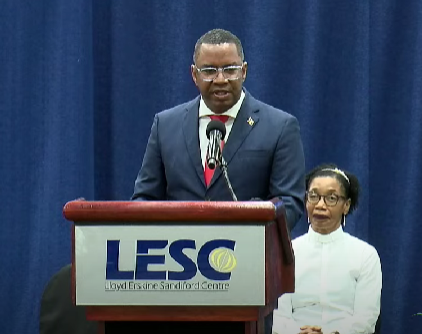State Appeals High Court Ruling on Drug Abuse Act Section; Court of Appeal Reserves Decision

November 26, 2024
The Court of Appeal is considering the State's appeal against a ruling that a section of the Drug Abuse Act is unconstitutional, impacting a case involving drug offences and the burden of proof.
The Court of Appeal has reserved its decision in the State’s application to appeal a High Court judge’s ruling that a section of the Drug Abuse (Prevention and Control) Act is unconstitutional.
The State is seeking to challenge the 2023 decision in the case of Christopher Rogers who applied for judicial review and constitutional relief, based on a challenge to Section 42(1) of the Drug Abuse (Prevention and Control) Act, after he was committed to stand trial for several drug offences.
Section 42 makes assumptions about a person’s knowledge of and possession of controlled drugs. It presumes that a person found with a controlled drug intends to supply it to another person unless they can prove otherwise, and the burden of proof is on the accused.
High Court Judge Madam Justice Shona Griffith had ruled that section is unconstitutional in that it contravenes an accused person’s right to the presumption of innocence guaranteed under the Constitution. As a result, Rogers’ committal to stand trial on importation, trafficking, possession and possession within intent to supply charges, which had been premised on his captaincy of the boat on which the drugs were allegedly found, and the operation of Section 42 (1) of the Act, was quashed.
On Monday, the State, represented by attorneys Noah Haynes and Kashawn Wood, Principal State Counsel Oliver Thomas and Senior State Counsel Nicole Boyce, made submissions before the Court of Appeal to reverse the decision to quash the committal and for the interpretation of Section 42 to place only an evidential burden on the defendant and not a legal burden.
Speaking to Barbados TODAY after presenting the State’s case before Justices of Appeal Francis Belle, Victoria Charles-Clarke and William Chandler, Haynes said: “There is a presumption under the Act that accused persons in certain circumstances–such as where they have a bag in their possession which is in their control or, in this instance, where they are the captain of a ship where drugs are found–that they are presumed to have knowledge. Our appeal is to say that they need not prove this more likely than not, but they need to raise some evidence to show that there is doubt as to whether or not they had knowledge. At trial, the law was struck down and we are saying that there ought to be an appeal because it is important in the investigation and prosecution of drug offences.”
The State also argued that the appeal would raise issues of public importance central to the enforcement of the Act, would impact persons involved in the enforcement of drug offences, and might affect law enforcement personnel’s decisions regarding charges and prosecutions for alleged drug offences. In addition, it submitted that this could have implications for persons whose convictions involved the operation of the relevant section of the Act.
Acknowledging the lengthy delay between the judgment and the filing of its appeal, the State said it was not feasible to determine whether an appeal was merited until the decision was written and released to the parties.
Senior Counsel Douglas Mendes, who, along with King’s Counsel Andrew Pilgrim, is representing Rogers in the matter, submitted that his client was impacted by the failure of the State to file its application to appeal the trial judge’s decision within the stipulated 28-day period following the ruling.
“He has been affected by these proceedings and continues to be affected by them,” the senior counsel stressed, saying this was due to the “dithering” of the authorities.
“If it is that the law enforcement authorities have been having difficulty for the last year and a half because Section 42 has been declared to be unconstitutional, it is not the failure of the learned trial judge. It is the fault of the intended appellants. So you cannot come to this court and say I have special reasons for seeking an extension of time, months after the time has expired, because it is affecting the law enforcement authorities when you have it within your power all along both to appeal within time but also to take certain measures to correct the situation and then say ‘well too bad Mr Rogers, you must face this whole thing all over again’,” he said.
Mendes said there were no special reasons demonstrated by the State for a time extension to appeal against the judge’s orders and no basis for it.


